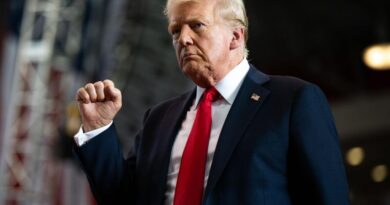The advantages of the Electoral College and Founders’ checks and balances in British elections

The recent British elections and their results should make Americans reconsider their complaints about the “undemocratic” aspects of the US system, particularly the Electoral College.
The Labor Party secured a significant majority of 412 out of 650 seats, which is 63% of Parliament, with just 34% of the popular vote, marking its worst performance in recent full elections.
This victory grants new Prime Minister Keir Starmer complete control over both the executive and legislative branches of the British government, giving him the authority to reshape the judicial branch if he chooses to do so.
Current laws allow him to hold office for five years without calling for a new election, and Labor can modify these laws to extend their tenure if desired.
By contrast, the ability of a US candidate to win the presidency by securing the Electoral College while losing the national popular vote doesn’t seem as significant. This is due to the separate elections for the House and Senate, leading to a different party often controlling one or both, with control shifting during a president’s term.
While the United States also operates with an informal two-party system, which differs from Britain’s multiple-party system, outcomes like Friday’s are more common. For example, the Conservative Party received 24% of the vote, resulting in 121 seats in Parliament (19%), while the Liberal Democrats secured 12.2% for 72 seats. The Reform party, with 14.3% of the votes, only attained five seats.
Essentially, the No. 4 party won 14 times more seats than the No. 3 party.
There are several factors contributing to this situation, which the British seem to understand and accept. However, we prefer our system of checks and balances, which disperses power among the federal government branches, as well as between the federal government and the states. This allows states like Florida, Texas, California, and New York to pursue different paths, while the Constitution, especially the Bill of Rights, limits the authority of any level of government.
Additionally, the Electoral College and the US Senate prevent larger states from overpowering smaller ones.
Progressives have criticized the US Constitution for many years, but the Founders’ framework allowed 13 small colonies to grow into the strongest and most free nation on Earth, still serving as a key defender against autocracy.
It is essential to preserve these checks and balances.



